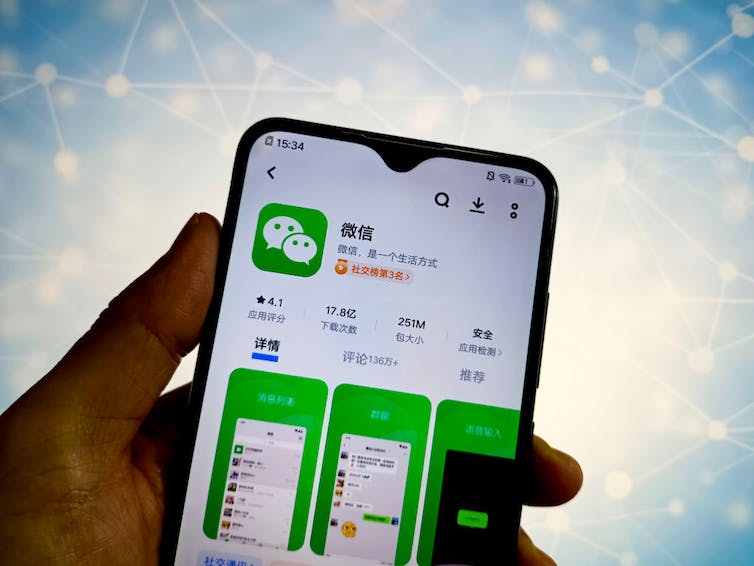Elon Musk’s recent rebranding of Twitter as X is a step toward the CEO’s goal of developing an “everything app.” Musk’s vision is for X to mark the spot for all your digital needs – to chat with your friends, order groceries, watch videos and manage your finances, all on one platform.
His recent announcement might have left you wondering what an everything app is and whether you need really one. If everything apps are so great, why isn’t there one that’s widely used in the U.S. already?
As someone who studies how consumers use social media and what that means for digital marketing, I find the idea of an everything app intriguing. I think that an everything app has the potential to be widely adopted in the U.S. if it’s well designed and is valuable to its users. But there are lots of obstacles standing in the way of success – from data privacy concerns to building a larger user base.
What is an everything app?
An everything app, also known as a “super app,” provides a wide range of features – from social networking to online shopping and financial services. Essentially it’s a fusion of many apps you may often use, like Instagram, Uber, WhatsApp and PayPal.
The intended goal of an everything app is to simplify daily tasks by saving time and effort needed to use multiple platforms. Through partnerships with third-party servicers, everything apps create an ecosystem where users can switch between different tasks without having to leave the app or install any others on their devices.

Everything apps, like WeChat, let users share photos with friends and pay bills, all in a single platform.
Future Publishing/Future Publishing via Getty Images
Over the past few years, everything apps have gained popularity, particularly in some Asian countries, as users appreciate the increased efficiency and convenience of having all their contacts and favorite app features in the same place.
WeChat, known as Weixin in China, is considered one of the first successful everything apps. This multifunctional app offers communication services – messaging, calling and social media – as well as many financial services, like mobile payment for peer-to-peer transactions and WeChat Pay, which helps users manage bill payments and investments.
WeChat’s widespread popularity has transformed the way people in China communicate and conduct daily tasks. It has become an essential app for over 1 billion users and is an important marketing tool for many businesses.
Other examples of everything apps include Line in Japan and KakaoTalk in South Korea.
Privacy and security concerns
But the very thing that makes an everything app so appealing – putting everything in one place – is also a source of concern.
In order to function, an everything app needs to collect an extensive amount of data, including your personal information, your contact lists, your location and even how much you use the…


